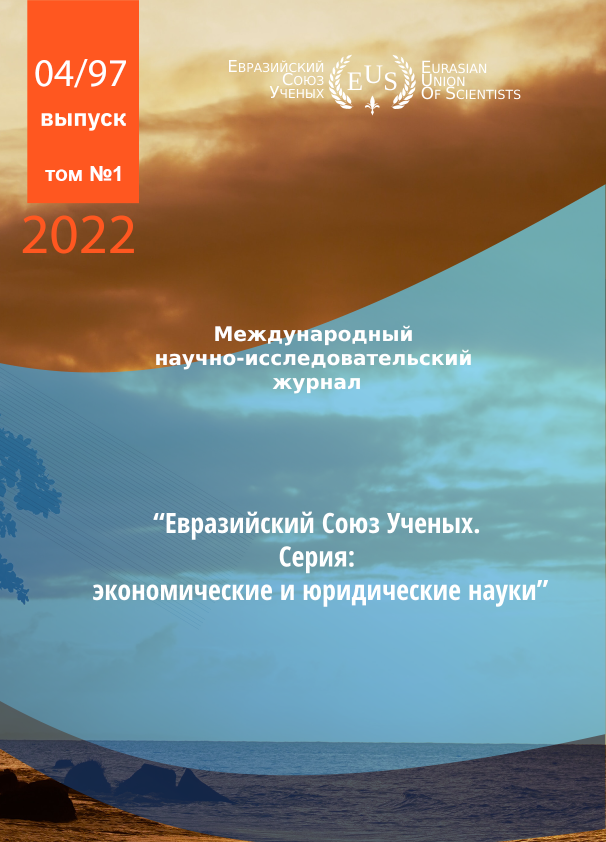INTERNATIONAL LEGAL REGULATION OF RESPONSIBILITY FOR ASSISTANCE OF TERRORIST ACTIVITIES
Abstract
The article analyzes international legislation regulating liability for aiding and abetting terrorist activities.
The given comparative legal analysis of the legislation of foreign countries allows us to state that the issue of
regulation of complicity in terrorist activities is solved in different ways. In a number of countries, the criminal
law not only does not disclose the concept of an accomplice, but does not use it at all, and liability for complicity
in terrorist activities is of a secondary nature and even implies a mitigation of punishment.
References
Violence. 2016. № 28 (5). P. 868–887.
[2] Mery po likvidacii mezhdunarodnogo terrorizma. Doklad General'nogo sekretarja OON. Dokument OON A/67/162, 19 July 2012.
[3] Mezhdunarodnaja konvencija o bor'be s finansirovaniem terrorizma: prinjata v g. N'juJorke 9 dek. 1999 g. // Bjul. mezhdunarodnyh dogovorov. 2003. № 5.
[4] Rezoljucija Soveta Bezopasnosti OON № 1624, 2005 g. [Jelektronnyj resurs] // Official Documents System of the United Nations. URL: http://daccess-dds-ny.un.org.
[5] Ugolovnyj kodeks Japonii / nauch. red. A. I. Korobeeva. SPb., 2002. S. 61.
[6] Ugolovnyj kodeks Avstralii 1995 goda / pod red. I. D. Kozochkina, E. N. Trikoz. SPb., 2002. S 79.
[7] Ugolovnoe zakonodatel'stvo zarubezhnyh stran (Anglii, SShA, Francii, Germanii, Japonii): sbornik zakonodatel'nyh materialov / pod red. I. D. Kozochkina. M., 1998. S. 197.
CC BY-ND
A work licensed in this way allows the following:
1. The freedom to use and perform the work: The licensee must be allowed to make any use, private or public, of the work.
2. The freedom to study the work and apply the information: The licensee must be allowed to examine the work and to use the knowledge gained from the work in any way. The license may not, for example, restrict "reverse engineering."
2. The freedom to redistribute copies: Copies may be sold, swapped or given away for free, in the same form as the original.







